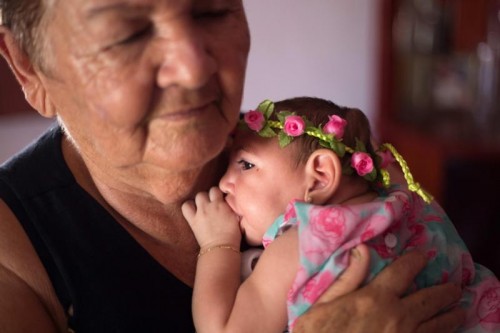SAO PAULO (CNS) — The president of the Brazilian bishops’ conference criticized a proposal by the U.N. Human Rights Commission that countries allow abortion in cases in which the mother was infected with the Zika virus.
“Abortion is not the answer for the Zika virus,” Archbishop Sergio da Rocha of Brasilia told reporters during a Feb. 10 news conference to announce the bishops’ Lenten Fraternity Campaign. “We need to value life in any situation or condition. Less quality of life does not mean less rights to live or less human dignity.”
The same day, Brazilian President Dilma Rousseff met with members of the National Council of Christian Churches of Brazil to seek their help in fighting the Aedes aegypti mosquito, which transmits the Zika virus.
Rousseff asked the religious leaders — including Catholics — to urge parishioners to look around their homes and neighborhoods for possible breeding grounds for the mosquito, which also transmits dengue and chikungunya fever.

The Zika virus, which has made world headlines in the past few weeks, has been linked by the Brazilian government to the surge in microcephaly cases, although only 400 of 3,670 suspected cases of microcephaly have been proven to be linked to the virus.
The possible link has led to the rekindling of the debate surrounding the decriminalization of abortion in Brazil. Groups that have often spoken out for the decriminalization are now said to be preparing a suit to be taken to Brazil’s Supreme Court for the authorization for abortion in cases of confirmed Zika infection in pregnant women.
Auxiliary Bishop Leonardo Steiner of Brasilia, secretary-general of the bishops’ conference, said groups are taking advantage of a painful situation to advance the discussion of abortion in the country. He said the church’s position would always be in favor of life.
Other Christian groups, however, would like to expand the discussion on abortion to other sectors of society and hear what women have to say.
“We understand this is an issue that needs to be discussed with society in a much more open and democratic manner,” said Joel Zeferino, president of the Alliance of Baptists of Brazil. “We need to include in this debate the women who suffer these abortions, the women who live on the outskirts of our cities, the black women, these are the ones who, in fact, resort to illegal abortions.”
In the United States, a Feb. 10 congressional hearing examined the growing threat of the Zika virus and response of U.S. health officials.
Rep. Chris Smith, R-New Jersey, chairman of the House Foreign Affairs Committee’s global health subcommittee, who led the hearing, stressed the need to “work harder to prevent maternal infections and devise compassionate ways to ensure that any child born with disabilities from this or any other infection is welcomed, loved and gets the care he or she needs.”
“Just as scientists found ways, including highly efficacious drugs, to prevent transmission of HIV-AIDS in pregnant women to their unborn children, further research must be undertaken to prevent mother-to-child transmission of other infectious diseases including Zika virus, if that link is established,” he added.
Smith also noted that there is much scientists admit they don’t know about the Zika virus and that this “lack of knowledge and misinformation has stoked apprehension and fear among many.”
Dr. Tom Frieden, director of the Centers for Disease Control and Prevention, and one of several health officials who spoke at the hearing, described Zika as an emerging health threat and a rapidly changing situation involving many partners in this country and abroad.
“There are many things we don’t yet know about Zika,” he said, adding: “We are figuring out more about Zika literally every day, and will share information — and adjust our guidelines and recommendations — as we learn more.”
Frieden said CDC doctors, scientists, veterinarians and health officials are “working around the clock to protect Americans from this and other health threats.” He also said they have made progress in identifying the virus, testing it and providing guidance in affected countries.
“Much of what we know about Zika and similar viruses today is based on the work done by CDC scientists who have dedicated their lives to working in this area,” he said.






















